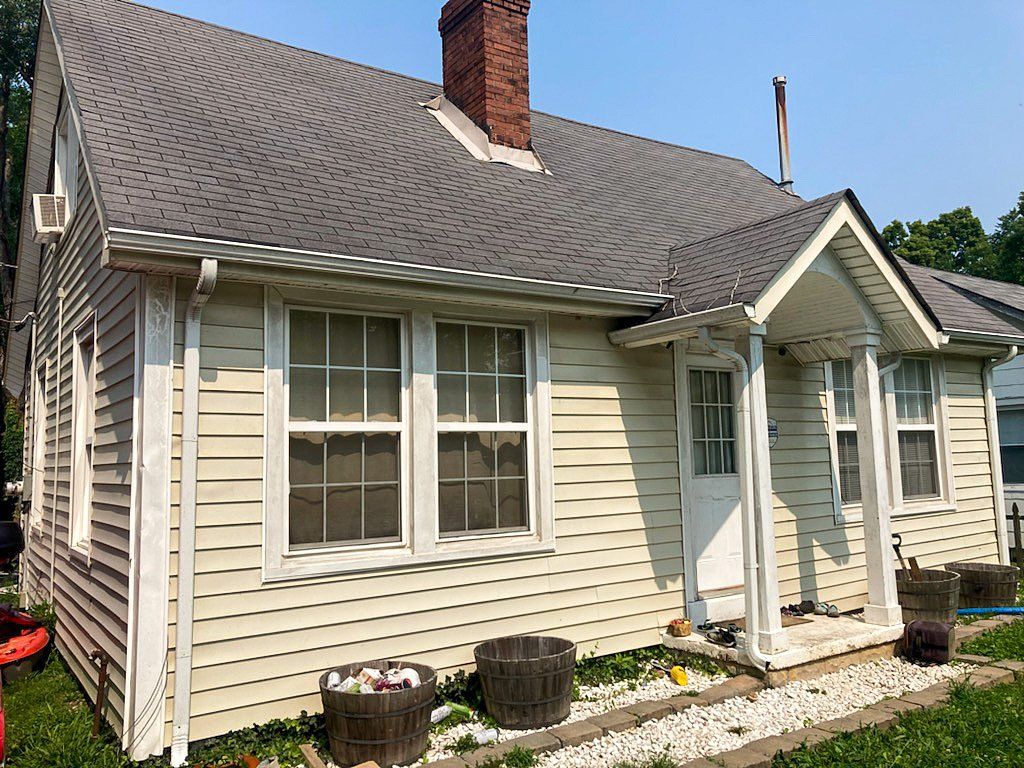What To Do When a Tenant Trashes Your Rental Property
Tenants have a right to get their security deposit back when leaving your house. But you have rights too. If a tenant damages your property while living there or when moving out, you have a right to make them take care of the damages. But you need to note that some damages, like paint deterioration, are caused by normal wear and tear. However, damages like clogged pipe work, broken glass windows, dented entrance doors, and damaged faucets can be caused by the tenant's negligence.
So when you want to
sell my house fast Newnan when the tenant moves out, you need first to identify the damages caused by tenant's negligence and make them liable. How do you go about it? Keep reading to learn steps to take when a tenant trashes your property and much more.
5 Steps to Take When Tenant Trashes/ Destroys Your Property
Chances are, as a landlord, you've put a lot of time and money into your rental property and screening tenants. But despite your best efforts, you may get tenants that end up seriously damaging your rental property either accidentally or on purpose (1). The good thing is that there are steps to take to identify the damages and make the tenant liable for the damages. That way, it would be easier to repair the house before a new tenant moves in or before you
sell my house Newnan for cash. Here are the five steps:
Step 1: Identify
The first step is to inspect the house and identify the damages. Please be sure to confirm the damages have been done by the tenant or happened during the tenant's lease period. You should take time to investigate and link the damages to possible situations that caused them. It is also advisable to control your emotions if severe damage has been done. Some tenants will be waiting for your reaction and will even provoke you so that you can do something stupid. Keep calm!
Step 2: Document
You can document the damages by taking high-quality, clear photos showing the damages that happened during the tenant's lease period. You can also record videos showing the damage. You can even call your plumber, electrician, and renovation contractor to explain how the house was before the tenant moved in and how it is now. All these will come in handy when the case ends up in court. It will help the judge rule in your favor.
Step 3: Estimate
You should get an estimate of all the repair work to be done from a reputable contractor. The contractor has vast experience and a wide network of vendors and will give an accurate estimate. Let the contractor explain the estimate in detail to you and to the tenant. You can even negotiate for a discount on all the repairs.
Step 4: Talk with the Tenant
Before you deduct the repair cost or take legal action against the tenant, discuss the damages and repair costs with them to find a favorable agreement. A reasonable tenant will express themselves, and you will probably agree on splitting the repair cost by half. Alternatively, you can ask them to buy fixtures or materials, and you pay for installation, repair, and replacement labor. Negotiation will help simplify the case for both of you.
Step 5: Deduct
Once you agree on how to cover the repairs, you should deduct the money from tenant's security deposit. Ensure you deduct the amount you have agreed. Don't be tempted to increase the cost. The tenants may report you, and you will have a rough time at the small claims court.
Three "What-If" Scenarios to Anticipate
Here are three different scenarios you are likely to face and how to handle each one:
1. If Tenant is Still in the Property
a. Document the damages - Take photos & videos and have a repair estimate quote.
b. Negotiate with the tenant - Go through the damages and repair costs with the tenant and negotiate for a fair payment plan and put it in writing.
c. Deduct the repair cost from the security deposit. If the tenant is not moving out, they can pay in cash.
d. If the repair cost is more than the security deposit and the tenant is not willing to top-up or pay in cash, take them to a small claims court.
2. If the Tenant Becomes Adversarial
a. If a tenant becomes a threat to you and other tenants, stay calm and give them a three-day notice to vacate. Get ready to evict them.
b. If the tenant becomes hostile and aggressive, report them to the police.
c. Pay the tenants to leave or refund their security deposit and let them leave. You don't have to worry because if you want to
sell my Newnan house fast, there are many
we buy houses Newman companies ready to buy the house for cash as it is at a fair price and close the deal quickly.
3. If the Tenant Refuses to Respond or Abandons the Property
a. If the cost of repairing damages is more than the security deposit, and the tenant is not responding to your calls/emails/texts, or they have abandoned your house, you can file a case at the small claims court.
b. File an insurance claim to recover your losses from tenant damage. Do this if the damages are serious and expensive to repair.
Can You Take Legal Action If a Tenant Destroys Your Property?
Yes, you can. If the tenant's negligence caused minor and major damages to your property, you can take legal action against them. You should do this if the tenant is uncooperative and their security deposit can't cover the cost of repairs. Also, if you want the tenant to vacate after damaging your property so you can repair or
sell my house fast Newnan, GA as it is, you should sue them for damages, claim the cost of repair and seek eviction orders.
Endnote
As time goes by, your rental property will wear and tear regardless of your efforts. But if severe damages are caused by the tenant either knowingly or accidentally, you should hold them liable. You can deduct the cost of repair from their security deposit. However, if the repair cost exceeds the security deposit and the tenant refuses to respond or cooperate, you should take legal action against them. Alternatively, you can file an insurance claim for damages caused by the tenant.
Give us a call anytime at 832-506-8040 or fill out this quick form to get started today!
Get A Fair Cash Offer On Your House










